#equally interesting is the wording in regards to what exactly this portrayed mindless violence is supposed to do and i would agree w it
Photo


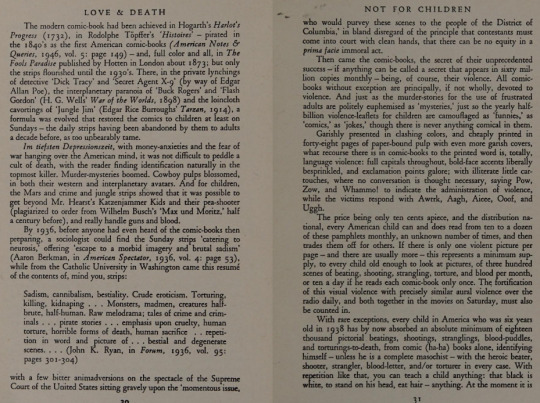
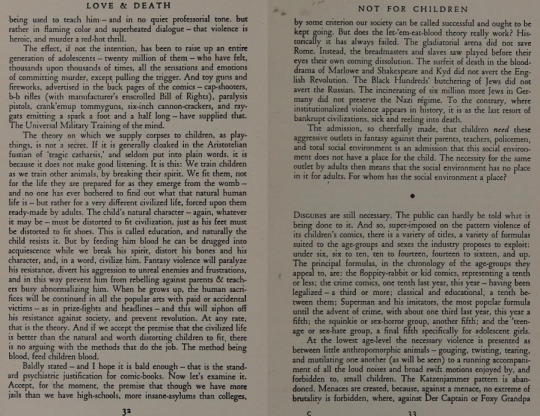
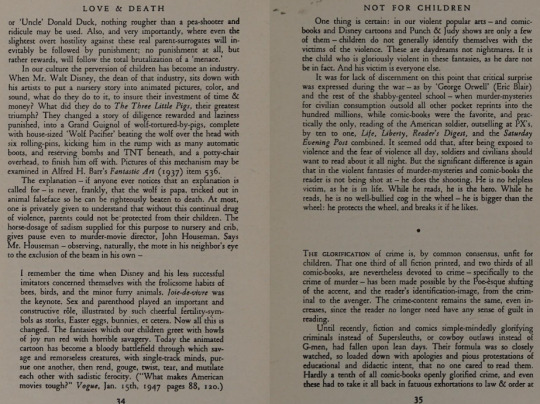
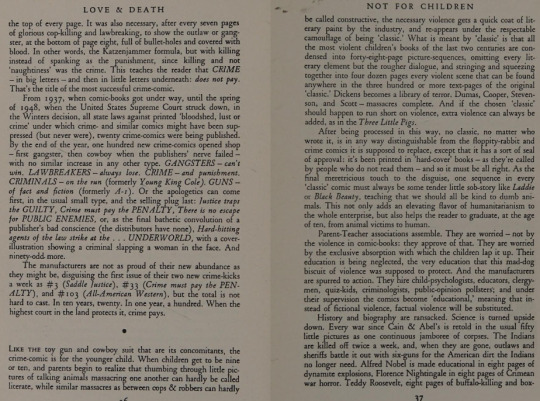
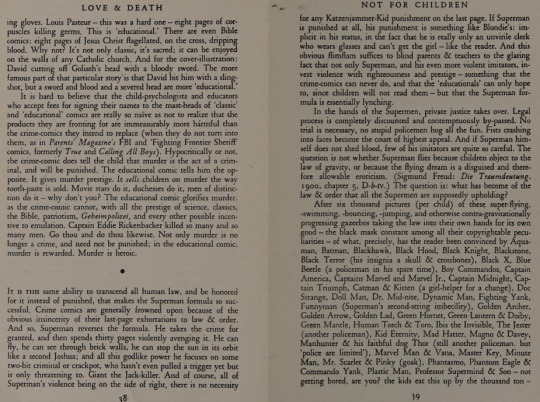

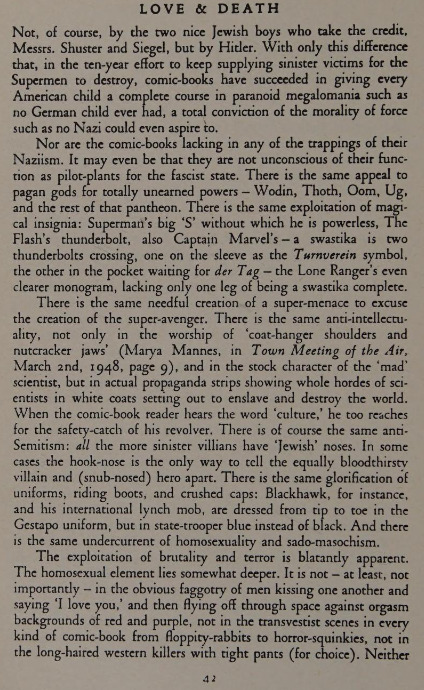

The aggressive content of comic books is so conspicuous that most observers fail to notice that this aggression is rigidly channelized, that the willingness of any reader to accept a fantasy escape from his frustrations presupposes a willingness to achieve less than total and actual escape. Like all other forms of dreaming, literature operates under a censorship. And this censorship -- in both its legal and internalized expression -- does not allow any direct, total attack on the frustration that elicits the dream. It offers a choice.
- Love and Death: A Study in Censorship (1949), Gershon Legman
Five years before Fredric Wertham’s infamous Seduction of the Innocent essay and the subsequent spark of anti-comic sentiment that nearly killed the industry along with the introduction of the Comics Code Authority and the Senate Subcommittee Hearing into Juvenile Delinquency, Gershon Legman had explored similarly sentiments in Love and Death: A Study in Censorship (1949).
The belief that the violence of pre-code comics was harmful to children and the approach of the ‘Superman model’ as inherently fascist explored in Legman’s work would form much of the basis for Wertham’s later criticism and the crusade against comics. Interestingly enough, Gershon Legman is widely believe to have been gay himself.
#love and death#love and death 1949#love and death: a study in censorship#gershon legman#fredric wertham#seduction of the innocent#anti-comics sentiment#anti comics sentiment#comics censorship#comic book history#u can reblog#i thought this was immensely interesting and obvious nonsense aside i think it brings up much better points than wertham's nonsense#primarily because legman is legitimately concerned w the portrayal of villains are racialized caricatures in some way or another#vs the white conventionally attractive socially acceptable hero by default#and thats a very interesting sentiment for 1949#equally interesting is the wording in regards to what exactly this portrayed mindless violence is supposed to do and i would agree w it#to the extent regarding. say. present day military propaganda in superhero movies#theres a lot to be said about it but id say its wildly interesting#and then extremely funny when it implies all aac and dc employes were gay. hell i wish#the end is obviously nonsense but i think it does read differently coming from a gay man#thoughts anybody?
15 notes
·
View notes